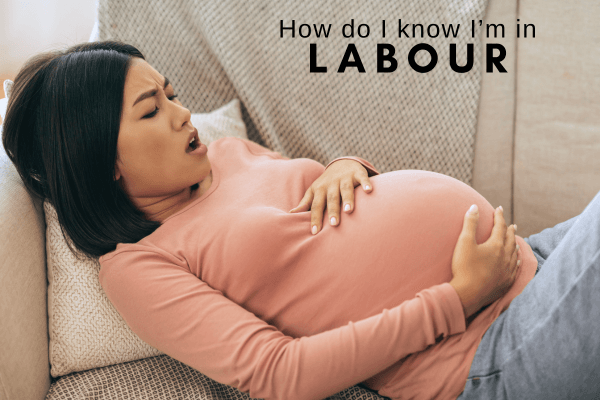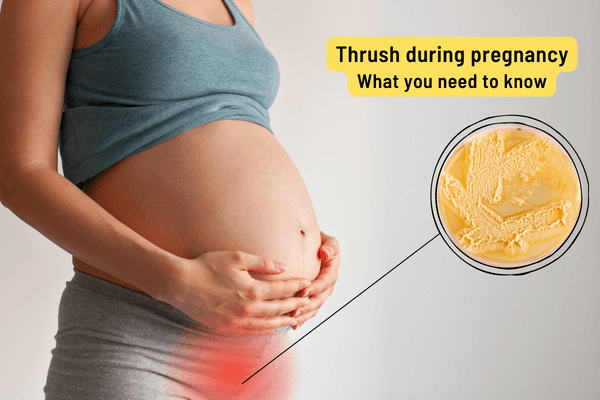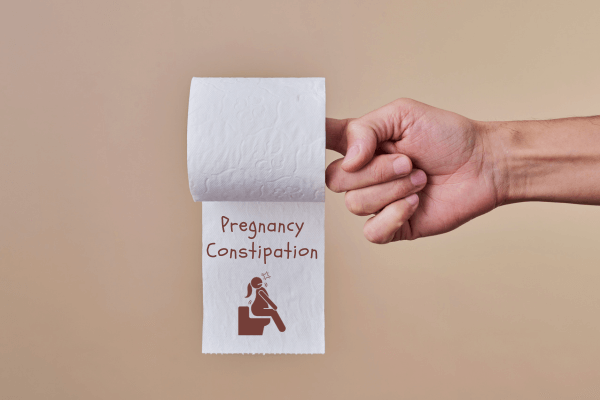Feeling like crying? Or are you constantly on edge?
Have you been experiencing this moodiness since you gave birth?
You might be amongst the 80% of new mothers who experience ‘baby blues’.
But how are these baby blues different from postnatal/postpartum depression? Let us find out.
For Jurassic World star Bryce Dallas Howard, motherhood didn’t feel as magical as she expected. “Nothing. I felt nothing. I couldn’t genuinely cry, or laugh, or be moved by anything. For the sake of those around me, including my son, I pretended.”
Like Howard, many mothers come face-to-face with some unexpectedly heavy feelings immediately after their child’s birth. For some, it is a whole range of emotions such as irritability, unhappiness, weeping to feeling absolutely nothing or feeling constantly exhausted. These are common symptoms of baby blues.
It is common to have these symptoms in the first few weeks. However, if they worsen and persist longer than a month, it could be a case of depression after pregnancy, commonly called postpartum depression (PPD) or postnatal depression (PND).
Overview of Perinatal Depression
Difference between Postpartum Depression and Baby lue
Baby Blues
– You experience quick mood swings from happy to sad. One moment you are loving your baby like a doting mother, another moment you are crying because you think your life is over.
– You are exhausted.
– You don’t feel like eating or taking care of yourself.
– You are overwhelmed or anxious.
– You feel irritable.
– These feelings ease up after a couple of weeks
Postpartum Depression
– You feel sad and hopeless most of the time.
– You feel alone, and find yourself tearing up often.
– You don’t feel like bonding with your baby.
– You find it hard to eat, sleep or nurse your baby because you feel despair.
– You may have anxiety or panic attacks.
– You feel this for more than 2 weeks.
Postnatal depression symptoms are more severe than those of baby blues and while baby blues ease up usually within 2-3 weeks, depression goes on longer and if you don’t receive the right help, could worsen with time.
How to Manage Baby Blues
Get enough rest. It’s important to get as much sleep as you can during the first few weeks after giving birth. This will help you to feel more rested and less overwhelmed.
-
Eating a healthy diet: Eating a healthy diet will give you the energy you need to cope with the demands of a new baby. Make sure to include plenty of fruits, vegetables, and whole grains in your diet.
-
Exercise regularly: Exercise is a great way to reduce stress and improve your mood. Even a short walk can make a big difference.
-
Talk to someone whom you can trust: Talking about how you’re feeling can help you to feel less alone. Talk to your partner, family, friends, or a therapist.
-
Don’t be afraid to ask for help: There are many people who are willing to help you during this time. Don’t be afraid to ask for help with things like cooking, cleaning, or childcare.
If you are experiencing the baby blues, it is important to remember that you are not alone. These feelings are normal and will usually go away on their own within a few weeks. However, if your symptoms are severe or last longer than two weeks, it is important to talk to your doctor.
Treatment of Postpartum Depression
- Talk to your doctor: The first step to treating postpartum depression is to talk to your doctor. Only a medical professional can diagnose postnatal depression. They can also help you rule out any medical causes for your symptoms and make sure you get the right treatment.
- Get professional help: Postpartum depression is a serious medical condition that requires professional help. There are a variety of treatments available, including medication, therapy, and support groups.
- Take care of yourself: It’s important to take care of yourself during this time. Make sure you’re getting enough sleep, eating healthy foods, and exercising regularly.
- Ask for help: Don’t be afraid to ask for help from your partner, family, friends, or a professional. Having a support system can make a big difference in your recovery.
- Your doctor may recommend counseling or antidepressants to treat your postpartum depression symptoms. They may also prescribe medication such as brexanolone (Zulresso), a new synthetic version of the hormone allopregnanolone, which has been shown to be effective in relieving postpartum depression symptoms.
Postpartum Depression and Baby Blues Timeline
Postpartum depression (PPD) is a common mental health condition that can affect women after childbirth.
Baby blues, on the other hand, is a milder form of postpartum mood disturbance that is experienced by many women in the first few days or weeks after childbirth.
The timeline of PPD can vary from woman to woman. However, it typically begins within the first few weeks after childbirth. In some cases, it may not develop until several months after delivery.
So what does Postpartum depression look like in real life?
It took actor Alanis Morisette 14 months to realise and recognise she had postpartum depression. “For me I would just wake up and feel like I was covered in tar and it wasn’t the first time I’d experienced depression so I just thought Oh, well, this feels familiar, I’m depressed, I think,” she shared in an interview.
Former Supermodel Chrissy Teigen couldn’t figure out what was going on for a long time. “I had everything I needed to be happy. And yet, for much of the last year, I felt unhappy. I couldn’t figure out why I was so unhappy. I blamed it on being tired and possibly growing out of the role ” she told a reporter many years later.
It is often hard to distinguish between symptoms of baby blues and postpartum depression. In fact often both of these go undetected. Most mothers are so tired and exhausted while their body is recovering from giving birth and at the same time they are also busy with babycare and breastfeeding and doing all of it on very little sleep! The heavy and sad feelings as well as the irritability, fatigue and anxiety feel like a natural result of it all.
Howard adds that “Postpartum depression is hard to describe, the way the body, mind and spirit fracture in the wake of what most believe to be a celebratory time.”
Teigen had difficulty sharing about her condition with her doctor because she felt selfish. Even though 15-20% of the new mothers suffer from PPD, they do not share their feelings with anyone including their spouses or doctors. A large part of the reason is the social taboo around it and the shame and guilt that mothers undergo at what they see as a failure when they feel unhappy or are unable to connect with their baby. However, lack of awareness and professional help only worsens their situation.
When should you seek clinical help?
When you experience signs of depression or if the baby blues don’t ease up after two weeks and the symptoms feel severe, consult a doctor immediately. Don’t wait for your 6-week checkup. Only a health care provider can determine whether the symptoms are of depression or something else so seek professional opinion and advise.
Those who sought help
“I had read about postnatal depression in a pregnancy book. So when I wasn’t feeling quite okay in the third week, I just called my doctor. She prescribed me medication and I felt the difference within a week. One of the things she told me to do was to go on walks with my husband three to four times a week and share my feelings. That helped me believe that I wasn’t alone,” shares 37-year-old first-time mom Elena Eastwood.
For 28-year-old Gloria, however, the lack of feelings for her new born raised red flags. “While I had researched all about pregnancy signs and symptoms I had not come across anything to do with depression. But for me it was weird that I saw my baby as a burden within the first week of nursing and rocking him to sleep every night. I knew I needed help. We first sought professional help through a nanny who helped me with caring for the baby so I could catch up on my sleep. But within 15 days, I met my doctor and she identified the symptoms of postnatal depression.. Thank God I sought help because from the third month on, I was feeling better and connecting with my baby.
Final thoughts
Come to think of it, what’s common between all these stories is that new mothers have difficulty admitting they need help. The guilt, shame and feeling of failure that seems to come with the condition make it even more difficult. Ignoring a problem, however, won’t make it go away. Lack of awareness towards your own needs as a mother may strip away precious months, and sometimes, even years from your life. It is time we normalise seeking help from our community and reclaim our lives.
While postnatal depression is in the spotlight in this post, there are just as many women that suffer from prenatal depression i.e. depression during pregnancy and often what shows up as postnatal or postpartum depression has its roots in the prenatal phase (i.e. in pregnancy).
Another fact that doesn’t get the attention it deserves is that men are at risk of postnatal depression as well. According to the CDC approximately 4% of fathers experience depression in the first year and by the child’s 12th birthday about 1 out of 5 fathers will have experienced one or more episodes of depression.
Despite it being such a large-scale problem with such a significant impact on families, their wellbeing and their quality of lives, depression doesn’t get the attention it deserves.
In our interviews with women all over the world we have often come across the impact that depression leaves behind in its wake. This is why at Veira we cover pre and postnatal depression in detail in our online prenatal classes. We want our community to understand the severity of this condition and the importance of seeking help early.
Our coaches have years of experience in working with women through their pregnancy and postnatal phases and can help with advice and support on the topic.
Timely support and professional advice are essential to help detect and deal with depression early on and ensure that families are able to truly enjoy the joy that this journey into parenthood brings.
FAQs
Baby blues typically last for a few days to two weeks after childbirth. If symptoms persist or worsen beyond that, it may indicate postpartum depression and require medical attention.
Postpartum blues, also known as baby blues, is a temporary form of depression that occurs in up to 85% of new mothers and resolves once hormonal levels stabilize.
Baby blues, a common condition after childbirth, are characterized by mood swings, irritability, sadness, and anxiety. They typically occur within the first two weeks postpartum and resolve without treatment.
No, not all women experience baby blues after childbirth. While it’s common, affecting around 50-80% of new mothers, some women may not experience this temporary mood change.
Postpartum typically refers to the first six weeks after childbirth. However, it can encompass a longer period, up to a year, as physical and emotional changes occur during this time.







